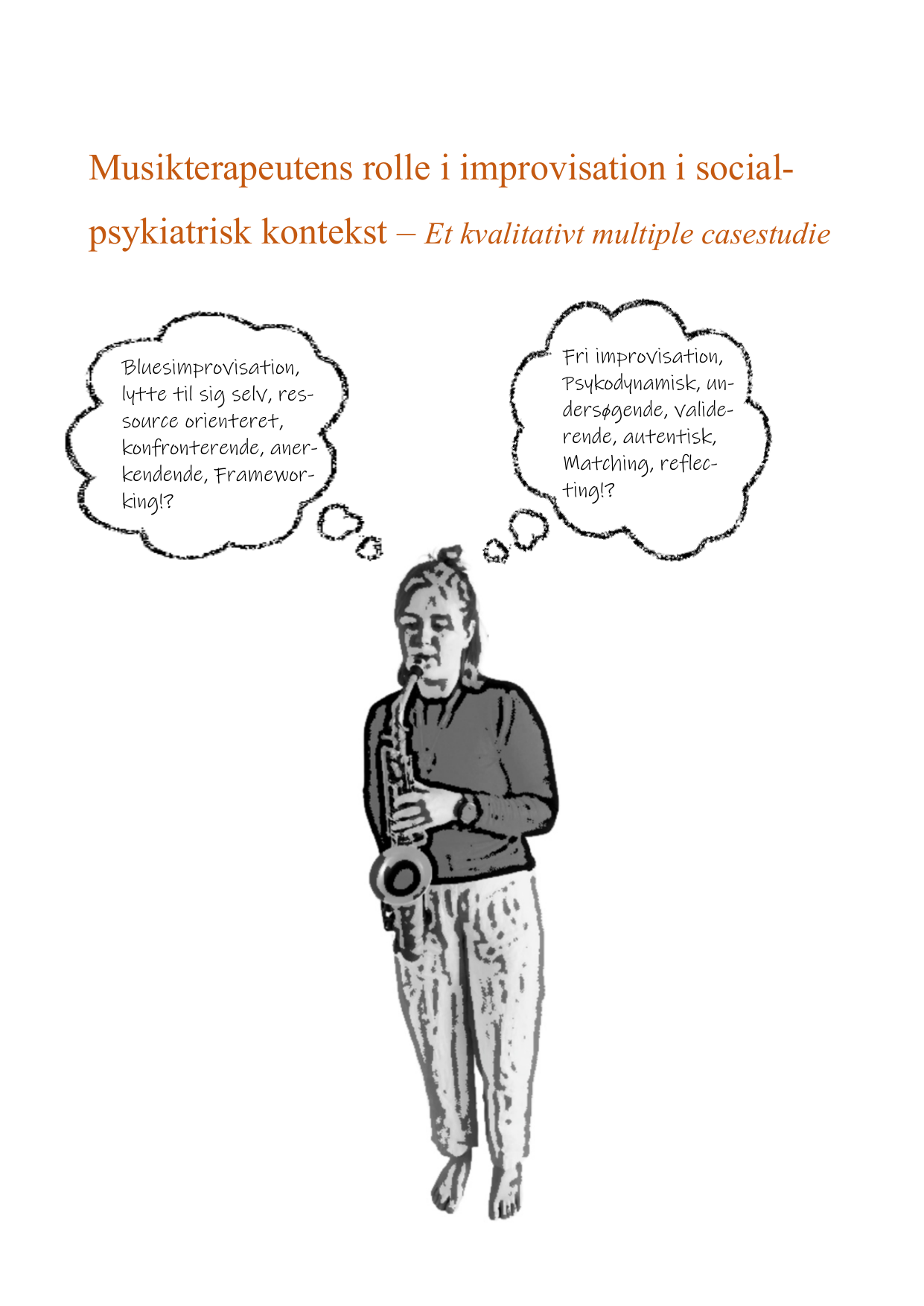
Musikterapeutens rolle i improvisation i socialpsykiatrisk kontekst: Et kvalitativt multiple casestudie
Oversat titel
The Role of the Music Therapist in Improvisation in a Social Psychiatric Context: A Qualitative Multiple Case Study
Forfatter
Semester
4. semester
Uddannelse
Udgivelsesår
2024
Afleveret
2024-05-30
Antal sider
80
Abstract
Aim: This qualitative multiple case study aims to explore my role as a music therapist in improvisa- tion within a social psychiatric context. The study is grounded in two music therapy courses with clients in social psychiatry, focusing on describing musical improvisations and the verbal dialogues before and after the improvisations. Through this, the study examines how music therapy interven- tions, techniques, and roles can be understood. The findings of the study are discussed through rele- vant therapy approaches and music therapy theories, including psychodynamic music therapy, re- source-oriented music therapy, and process-oriented music therapy. Background: The study is based on my clinical work during my ninth-semester internship at a so- cial psychiatric residential facility for young adults aged 17-35 years. The thesis is rooted in my cu- riosity about the significant differences observed between the two cases and how my role as a music therapist can be understood within this context. Method: The study is situated within the exploratory domain of research and applies an inductive approach. The empirical data consist of audio recordings of musical improvisations and transcrip- tions of dialogues before and after the improvisations. The analysis focuses on describing and un- derstanding the data through a phenomenological and hermeneutic approach. Results: The analysis indicates differences between the two cases in the structure of the play rules of the improvisations, the musical expression and structure, and the improvisational techniques that are used. According to the therapeutic roles, the findings show similarities between the two cases, and it shows that I take on shifting roles in both the improvisations and the conversations. These findings offer insight into how the verbal and music interventions shape the therapeutic roles. Other music therapists can use this research to reflect on their own use of the improvisational method, and other professional groups can use this research to understand how music therapists operate and how an interplay between roles in dialogues and musical improvisations can unfold. Keywords: Music therapy, musical improvisations, therapeutic roles, social psychiatry.
